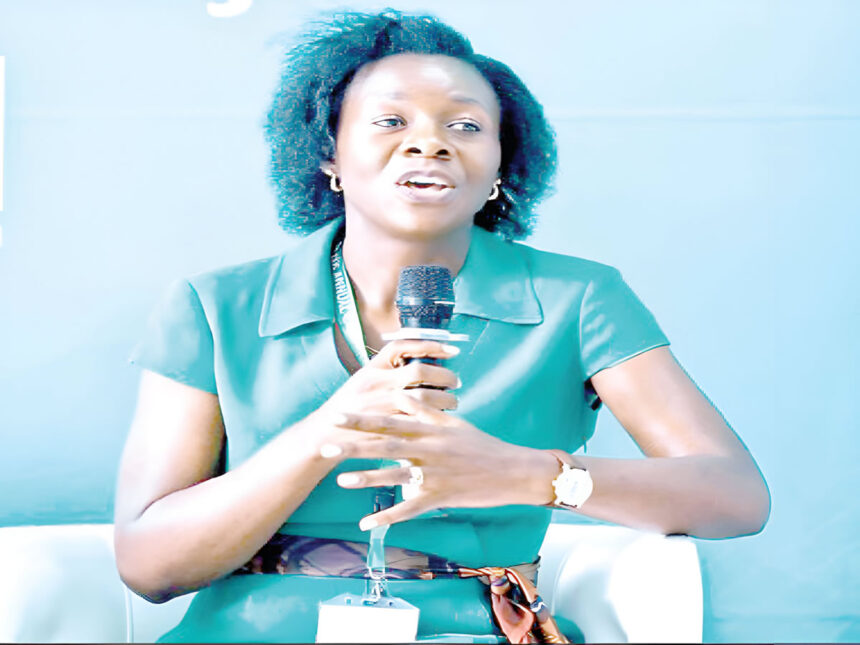Julia Shisia is the Executive Director, Absa Bancassurance, in Kenya. In this interview with SEGUN KASALI, she shares her childhood experiences and what informed her decision to abandon her childhood dream of becoming a medical doctor for an insurer.
What was growing up like?
I was a happy kid—a very happy girl. My mother treated me like a queen. I cannot say we came from a billionaire background, but we could basically afford what we wanted. We really had a modest and happy family. I got a lot of insights from my mother and father. My family always encouraged us to go to school and be the best we could be. Sometimes, we always want to get things done today but we learnt from our mother that we should always value patience. So, that patience taught me to take things slowly. And my father always taught me to aim for the sky. He would say, “You are capable, you can do it.” He always told us to be ourselves and be courageous.
What other traits did you inherit from them?
Working hard and family values. I am a Christian and I believe in family value. The popular saying that “treat me the way you want to be treated” was also infused into us. Our parents brought out what everyone was good at in us.
Why do you think you were treated specially by your parents?
It was such a big family. It was a family of 10. I was number eight in the family. I think the preferential treatment stemmed from me being vocal. I was a curious person. There were times my dad wanted to go out and would like to go with one person. So, I would always be the first to say yes to his request whenever he wants someone to go out with him. When he wanted to go somewhere, I would join him. Mostly, we had dinner together and I’d use that opportunity to tell him to get this and that for me. My dad was a good listener. Ah, he listened o! One thing my dad never did was to give me a “No” answer. He would rather say, “I’ll think about it.”
Can you give us instances of such?
I think I was 12 years old when we wanted to go for a school trip and I told him about it. He responded that he would think about it. I think two days later, he told me that the school trip is good but that I should spend that time studying. He told me you are a girl and you are going places. He told me to focus on my studies that all these other things would distract me. So, that taught me delayed gratification.
Did that affect your academics in any way?
I used to be top of my class. From the primary level, I was always leading the class. I went to high school which was highly competitive. It was a national school called Moi Girls High School, Nairobi, Kenya and it is known to only select top students. There were many students in our time.
Were you still among the top students there?
That was where I realised it was not just about being number one. It was a hard thing to be number one. It is about being the best you can be. So, I was also a prefect. You can imagine being selected a prefect out of more than 1,000 students. So, I stayed true to myself because I looked at the best form of myself that I could be. Though you may be tempted to look at others, it is important to look inwards.
What did that mindset eventually give you?
What it gave me is what brought me to where I am today. It helped me see people for who they are. When you see them and the value they have, they keep bringing the value.
What unforgettable experiences did you have in that top school?
I think it was the discipline. There was a headmistress who was like a mother to us. When you wake up, you focus. It was discipline. So, you must be consistent and disciplined in whatever you wanted to do. Stick to it and don’t give up. Talking about negative experience, the seniors used to send me to the canteen; we didn’t even know that was bullying. We would do it because, sometimes, they would give you half of that thing you had gone to get for them. Also, something I saw that was also interesting in the school was that some girls had to drop out of school because they didn’t have school fees to go and get married. These were brilliant kids that were top of their classes. There were no scholarships, I think. That experience made me think that if I met a girl who is bright and has a lot going for her today, the only thing they need is the opportunity. I discovered opportunity is what creates people. And I have supported a lot of girls by helping them get opportunities. This is because what they need, sometimes, is just exposure.
What did you eventually study at the university?
First, you have to know I wanted to be a doctor. So, I went into the Sciences thinking that one day I would be a doctor. But, you know, universities often went on strike. During one of those strikes, I was home when my neighbour suggested I try selling insurance. I told her, “I can’t do that!” But she said, “You’re just sitting at home anyway.” But I used to read a lot of novels, and watch TV’s. So, I went there for a job. We were trained on insurance, even though I was still a student. And guess what? That job launched my career. They gave me a lot of promotions. So, I said to myself I would go into insurance full-time after graduating university. I then realised that the financial sector is broad and I saw in the insurance sector that there was a lot going on the banking side. When the bank started distributing insurance, I moved there because it felt more impactful.
READ ALSO: CONUA decries incessant strike actions in Universities
WATCH TOP VIDEOS FROM NIGERIAN TRIBUNE TV
- Relationship Hangout: Public vs Private Proposals – Which Truly Wins in Love?
- “No” Is a Complete Sentence: Why You Should Stop Feeling Guilty
- Relationship Hangout: Friendship Talk 2025 – How to Be a Good Friend & Big Questions on Friendship
- Police Overpower Armed Robbers in Ibadan After Fierce Struggle






